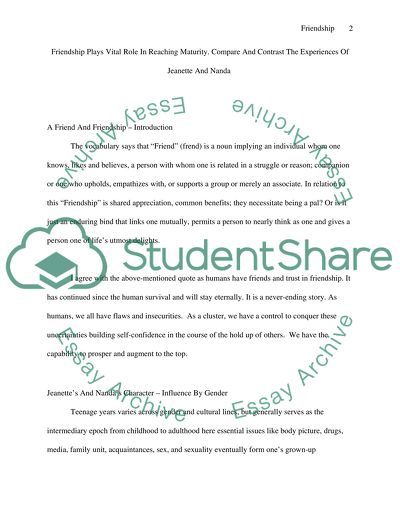Cite this document
(“Friendship and Maturity Book Report/Review Example | Topics and Well Written Essays - 2750 words”, n.d.)
Friendship and Maturity Book Report/Review Example | Topics and Well Written Essays - 2750 words. Retrieved from https://studentshare.org/sociology/1534078-friendship-and-maturity
Friendship and Maturity Book Report/Review Example | Topics and Well Written Essays - 2750 words. Retrieved from https://studentshare.org/sociology/1534078-friendship-and-maturity
(Friendship and Maturity Book Report/Review Example | Topics and Well Written Essays - 2750 Words)
Friendship and Maturity Book Report/Review Example | Topics and Well Written Essays - 2750 Words. https://studentshare.org/sociology/1534078-friendship-and-maturity.
Friendship and Maturity Book Report/Review Example | Topics and Well Written Essays - 2750 Words. https://studentshare.org/sociology/1534078-friendship-and-maturity.
“Friendship and Maturity Book Report/Review Example | Topics and Well Written Essays - 2750 Words”, n.d. https://studentshare.org/sociology/1534078-friendship-and-maturity.


